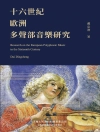In ‘On the Execution of Music, and Principally of Ancient Music, ‘ Camille Saint-Saëns embarks on a profound exploration of musical interpretation, focusing particularly on ancient compositions. The text is characterized by its meticulous argumentation, marrying scholarly analysis with poetic expression, highlighting the significance of historical context in the performance of music. Saint-Saëns delves into the nuances of musical execution, advocating for a restoration of authenticity in the interpretation of ancient works, which he perceives as a pivotal yet often neglected aspect of musical practice. Saint-Saëns, a prolific composer and fervent advocate for classical music, was deeply influenced by the rich tapestry of musical traditions that spanned across history, ranging from ancient to contemporary epochs. His extensive background in both composition and performance, as well as his scholarly pursuits, informed his critical insights into the art of music-making. This book is a testament to his desire to fuse tradition with innovation, underscoring his commitment to preserving the integrity of ancient music. This work is essential for musicians, musicologists, and enthusiasts alike. It not only challenges readers to reconsider their approach to ancient compositions but also enriches their understanding of the historical implications of musical performance. Saint-Saëns’ eloquent advocacy for authenticity in music execution makes this text a valuable resource for anyone seeking to deepen their appreciation of the art form.
Over de auteur
Camille Saint-Saëns (1835–1921) was a multifaceted French composer, organist, conductor, and pianist, who is often remembered for his contributions to the Romantic music era. A prodigious child, Saint-Saëns exhibited exceptional musical talent from a very young age, and he matured into a prolific composer who enriched the world with a diverse body of work, including operas, symphonies, concertos, and chamber music. His scholarly pursuits extended beyond composition; Saint-Saëns was also a dedicated musicologist and writer, deeply invested in the study and performance of both contemporary and ancient music. His writing, ‘On the Execution of Music, and Principally of Ancient Music, ‘ reflects his profound understanding of performance practice and historical musicology, and it offers insights into his aesthetic sensibilities and pedagogical approaches. Although Saint-Saëns is best recognized for popular works such as ‘Carnival of the Animals’ and ‘Danse Macabre, ‘ his written legacy provides a lens through which to appreciate his intellectualism and his commitment to the integrity of musical execution. His impact on French music was substantial, and he remains celebrated for his role in reviving interest in older forms of music, such as the music of Bach and Handel, as well as for his influence on the younger generation of composers that followed.












